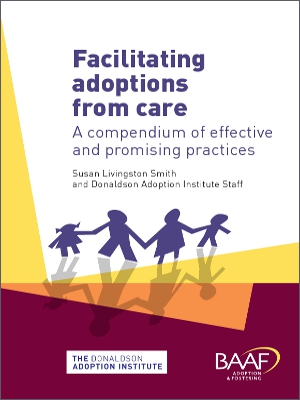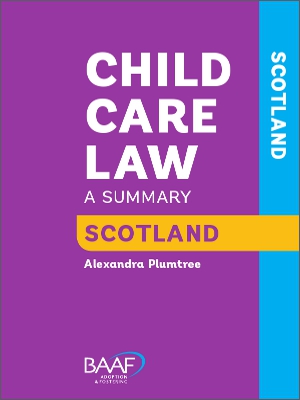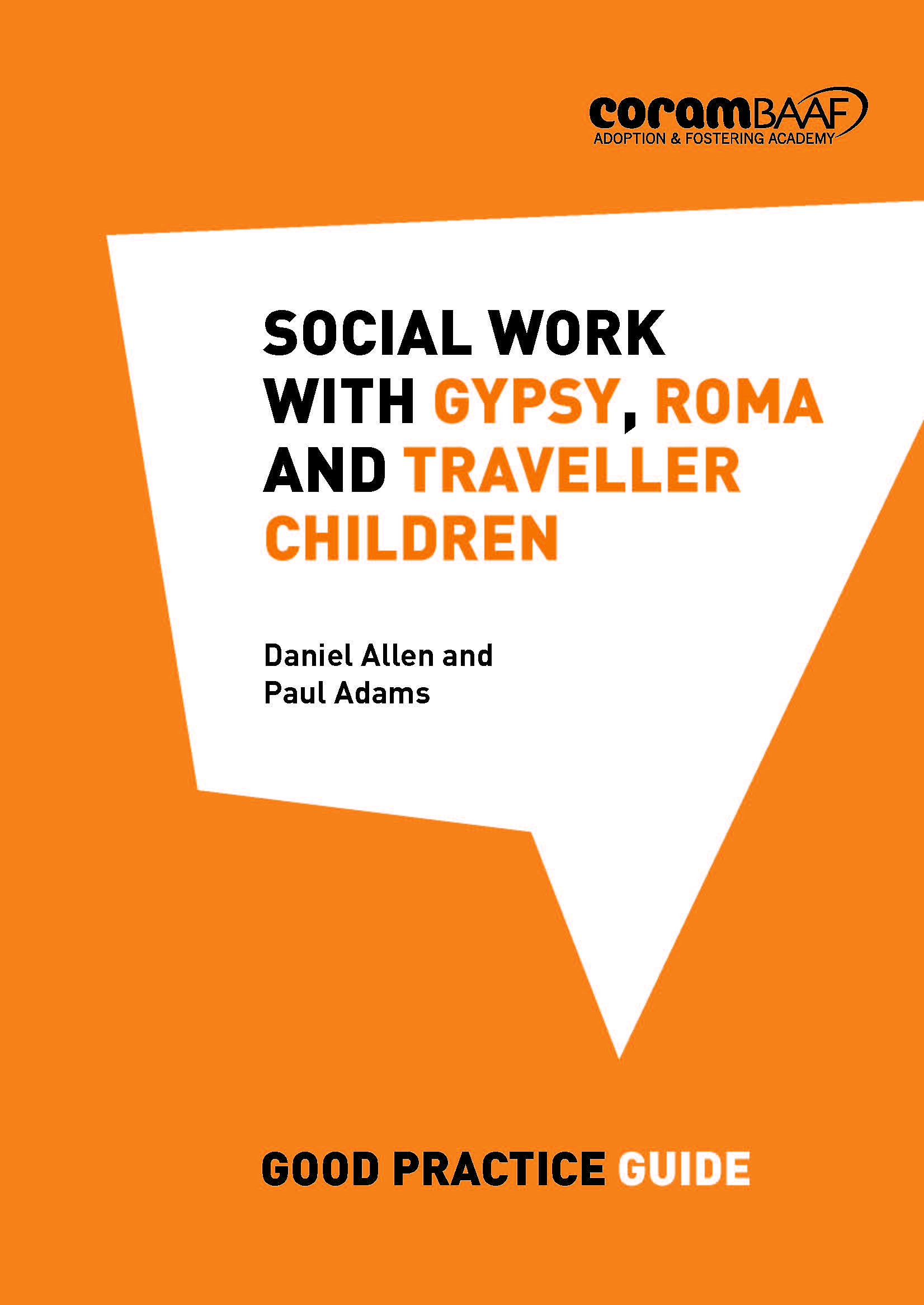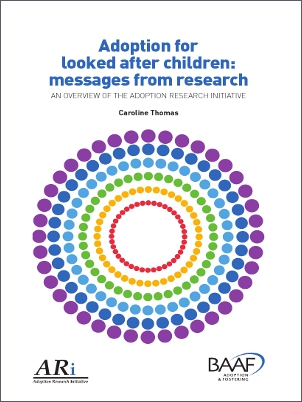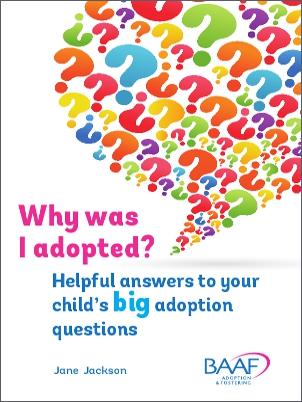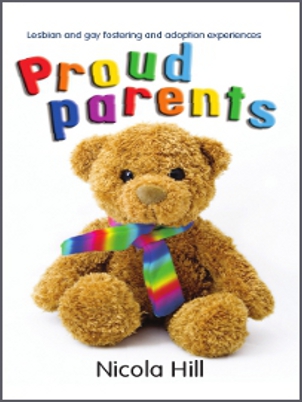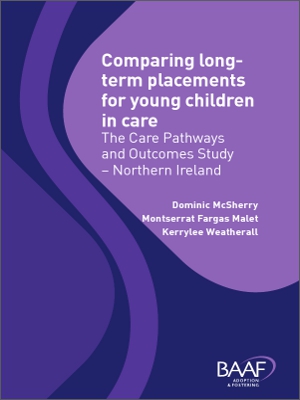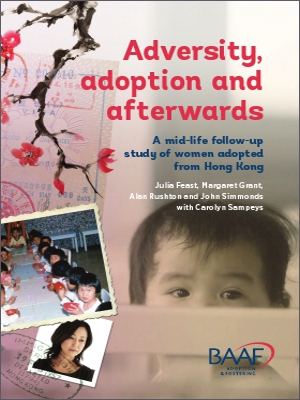Facilitating adoptions from care
| Susan Livingston Smith and Donaldson Adoption Institute staff
This fascinating collection examines child welfare research, permanency and practice across England, the US and Canada, three countries which have established permanency as a priority for children in care who are unable to return home.

